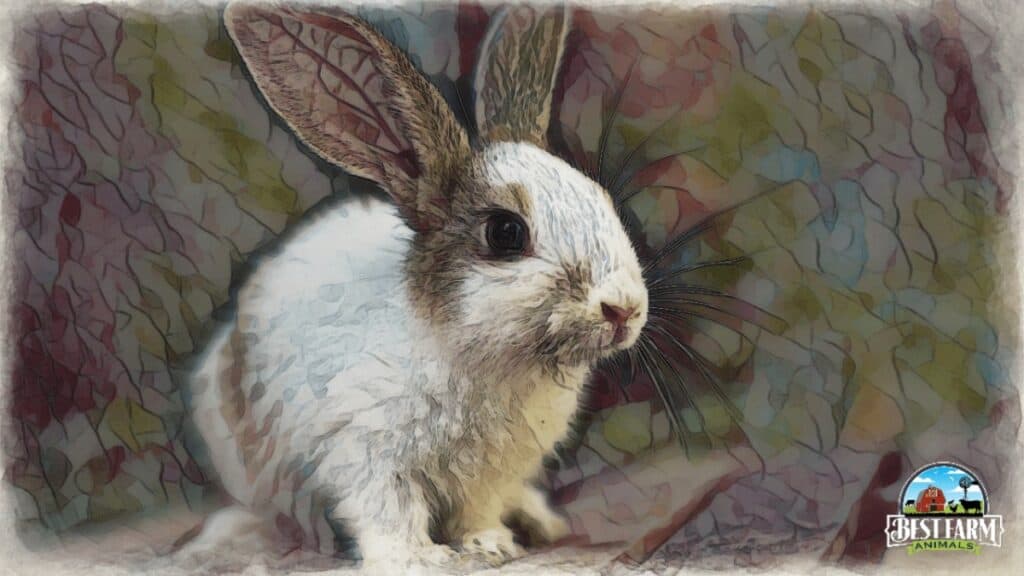I love my little growing family of rabbits. My kids adore their bunnies. We spend many afternoons watching the fluff balls romp on the lawn behind our homestead. One particular afternoon we noticed that Fred, our lionhead rabbit was lying down and shaking. We became very concerned.
Why is my rabbit shaking? Rabbits shake from fear, nervousness, excitement, stress, and illness. Hot rabbits may exhibit heat shaking as they don’t do well in the heat. Eating something toxic or other digestive problems may also cause shaking. Rabbits shaking during sleep is fairly common and one of the less worrisome reasons.
It may be nothing to worry about or it can be a real cause for concern.
Knowing why your rabbit is shaking helps you determine how severe the cause is and what to do about it. Sometimes you need to leave your rabbit alone to calm down and become less stressed or anxious, or you need to rush them to the vet if they have a digestive complication.
I called my local bunny expert and breeder to find out why our dear Fred was shaking, what caused it, and what we needed to do. It wasn’t a simple answer I got, and we found out that there are as many as 10 reasons why rabbits shake with many different things you can do to help them.
10 Reasons For Your Shaking Rabbit
Rabbits are quite nervous by nature as they are prey animals, so they are always on alert. However, there are many reasons why they shake, and not all of them have to do with fear.
1. Rabbits Shake When They are Happy and Content
Believe it or not, rabbits are a lot like cats in some ways. For instance, rabbits also purr out of joy sometimes. Rabbits also shake or tremble with happiness. You may find your rabbit shaking slightly when they know it’s feeding time or their favorite person is about to come home.
This is not a negative type of shaking rabbit, and if you notice your if trembling with joy, you can enjoy their happiness and snuggle up to them. Bonded rabbits often tremble with happiness when their rabbit or human partner has made them happy.
What It Looks Like:
Your rabbit will tremble slightly, but there will be no other signs of pain or worry. They will have a relaxed body posture and their ears will be relaxed too, unless they are listening for the sound of your footsteps announcing food.
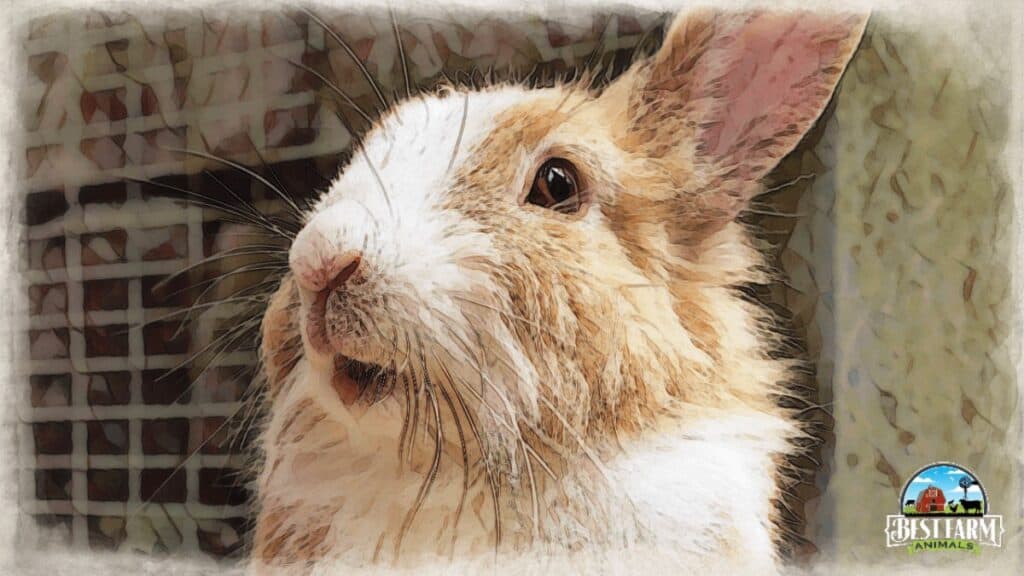
2. Rabbit Shaking While Lying Down From REM Sleep
Like little puppies, rabbits also dream. In their sleep, they may run, tremble, and twitch their limbs and their fur may also flick, which looks like your rabbit is shaking. Whether this means they are running after a carrot that’s just out of reach or just redundant electrical impulses in their muscles is unclear. Rabbit twitching when they sleep is normal and nothing to worry about.
When your rabbit starts to tremble and its breathing becomes ragged, you may have to consult with your vet as the trembling may not be as a result of dreaming. There may be a more severe cause of their trembling then.
What Trembling Looks Like:
Natural sleep trembling presents as shaking of the limbs, flicking of the skin or fur, and twitching of the whiskers.
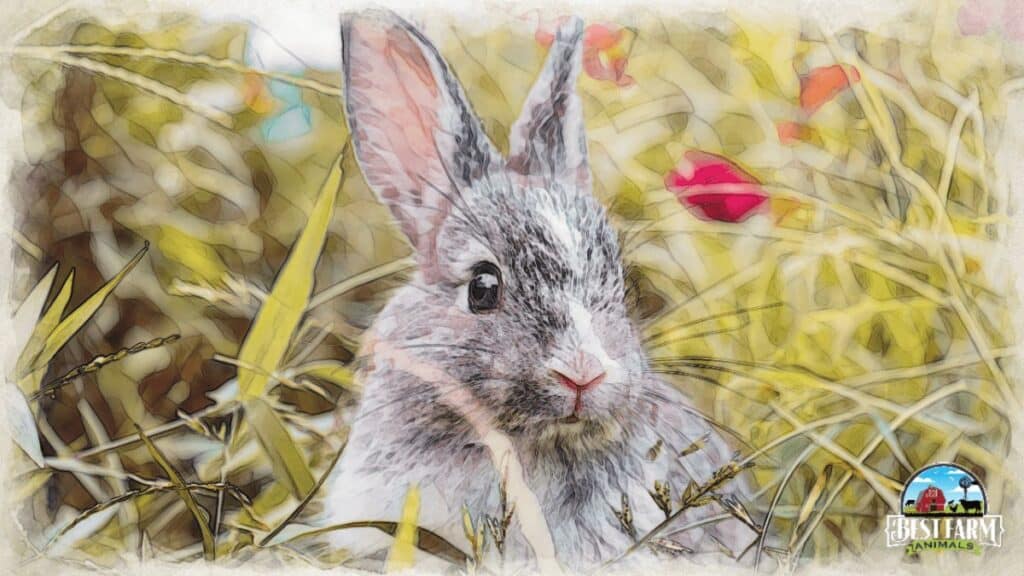
3. Angry Thumping Proceeds a Nip or Bite
Rabbits can appear docile and quite gentle, but they can also become extremely angry at times. When a rabbit gets really angry, they shake and may also thump their back feet in response to their anger.
If your rabbit starts thumping and shaking because you are handling them, they are angry at you. A kick or nip may soon follow, so when you see your rabbit shaking-it is a sign that it’s time to put it down or leave it alone.
What It Looks Like:
A rabbit that shakes and flicks their fur repeatedly may be angry, but when they add in back legs that thump, you know they are angry.
4. Hiccups and Pre-Sneezes Look Like Shaking Rabbit
All baby animals that suckle tend to suffer from hiccups, and your rabbit kits can also suffer from hiccups that may present as shivering or twitches. Some older rabbits may also hiccup when they have recently eaten.
What It Looks Like:
A rabbit hiccup is a shiver or twitching movement that may cause their body to tremble if it happens repeatedly. The trembling will be rhythmic, occurring when the rabbit hiccups.
5. Rabbit is Shaking from Heat Stroke
Rabbits can shake from heat stroke because they don’t tolerate heat well. Your rabbit may also suffer heatstroke if they have been left in a sunny spot for too long. Rabbits are cold-loving creatures, and they don’t do well in extreme heat since they struggle to self-regulate their body temperature. No surprise really since they are wearing a thick fur coat all year long.
What It Looks Like:
If your rabbit is trembling and shaking from heatstroke, they will have other accompanying signs too. They will have an elevated heart rate, irregular breathing, convulsive shivering, and even drooling from the mouth has been known to coincide with heatstroke.
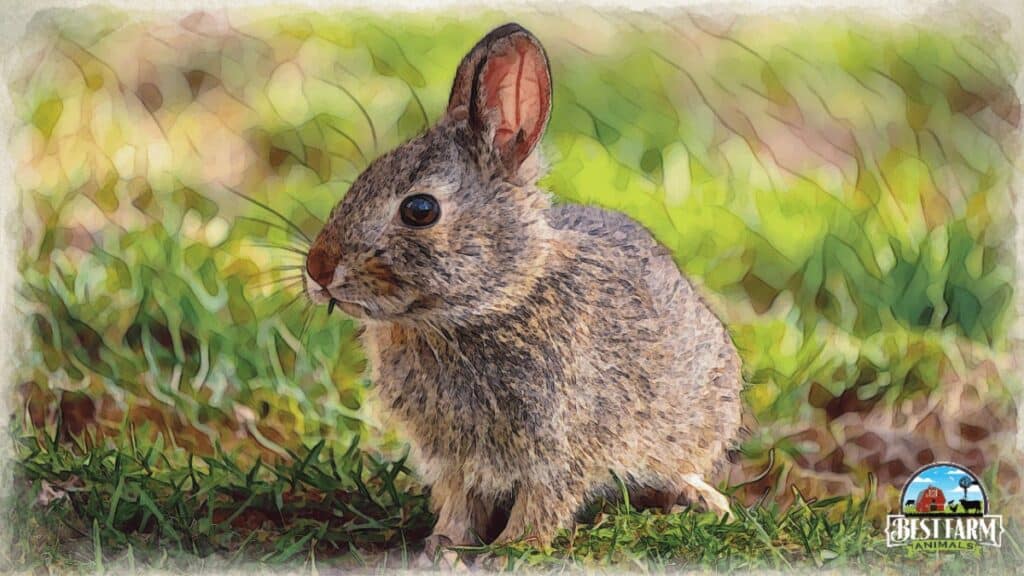
6. Fear-Induced Rabbit Shake
Rabbits shake out of fear. Rabbits are fearful creatures, and it doesn’t take much to scare most of them. Sudden noises, loud bangs, flashing lights, and fast movement can all trigger their prey instinct, and they will become frightened.
What It Looks Like:
A frightened rabbit will shake continuously, its heart rate will increase dramatically, and breathing will become irregular. It will have stiffened ears and limbs as they prepare to dash for dear life.
7. Shaking Rabbit Caused By Ear Mites and Lice
Rabbits may shake their heads convulsively if they have a burden of ear mites or an infestation of lice. While lice is not common, many rabbits suffer from an infestation they can pick up from your other pets like cats and dogs.
Lice feast on soft skin, and the rabbit has soft ears, so it’s natural for the lice to congregate in the rabbit’s ears. Your rabbit will shake their head repeatedly, scratch, and even begin to tremble if they are suffering from these pests.
What It Looks Like:
A rabbit that has ear mites will shake their head and try to scratch at its ears. As a result of the ear mites, your rabbit will shake and sit with its head at an angle. Severe mite infestations may lead to bleeding from the ear canal.
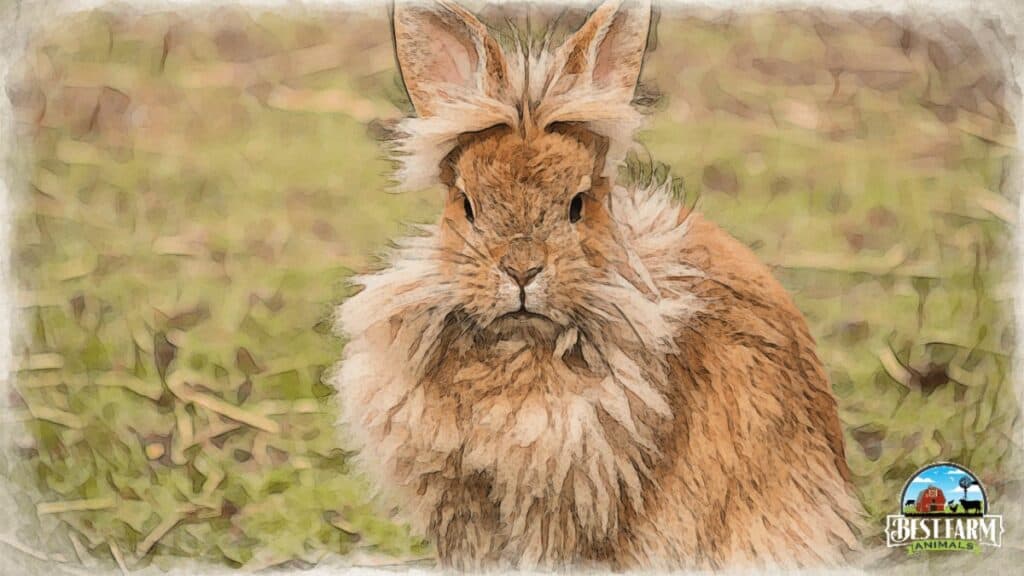
8. Parasites and Ear Infections Can Cause Trembling and Listlessness in Rabbits
Rabbits are very fastidious about cleaning, so it may be a surprise to learn worms, stomach parasites, and fleas can infect them. The presence of a serious parasite can lead to your rabbit trembling and shaking its head.
The trembling may be as a result of pain, fever, and even discomfort. When your rabbit scratches and looks listless, chances are big that they have some parasite infection or illness.
What It Looks Like:
A rabbit that lies listlessly with a glazed expression on its eyes usually has some sort of health challenge. If you see your rabbit lying in its cage in an uncomfortable or strange way, you may start to notice a bloatedness of its stomach. They may squirm more than usual when you touch them.
9. Stress-Induced Nervous Tension Shaking
A constantly shaking rabbit may have nervous tension. It happens when your rabbit has been exposed to too much tension or loud and frightening noises for an extended period. This is somewhat different from fear. The rabbit moves past the point of being “jumpy” and becomes almost catatonic. They will avoid others, sit in a corner, and they will stop trembling and start jittering.
This can happen if your rabbit is exposed to your dog on a regular basis. Rabbits may not ever get used to the family dog and can develop stress-induced nervous shaking.
Convulsive contractions of their muscles or spasms may be seen in a nervous rabbit. A nervous rabbit can also be unexpectedly vicious, kicking out for no reason or bullying other rabbits. This is quite like someone who has post-traumatic stress disorder or shell shock.
What It Looks Like:
Your rabbit will cower in a corner, jittering non-stop. They may begin to overeat, avoid eating, or stop socializing with the other rabbits altogether.
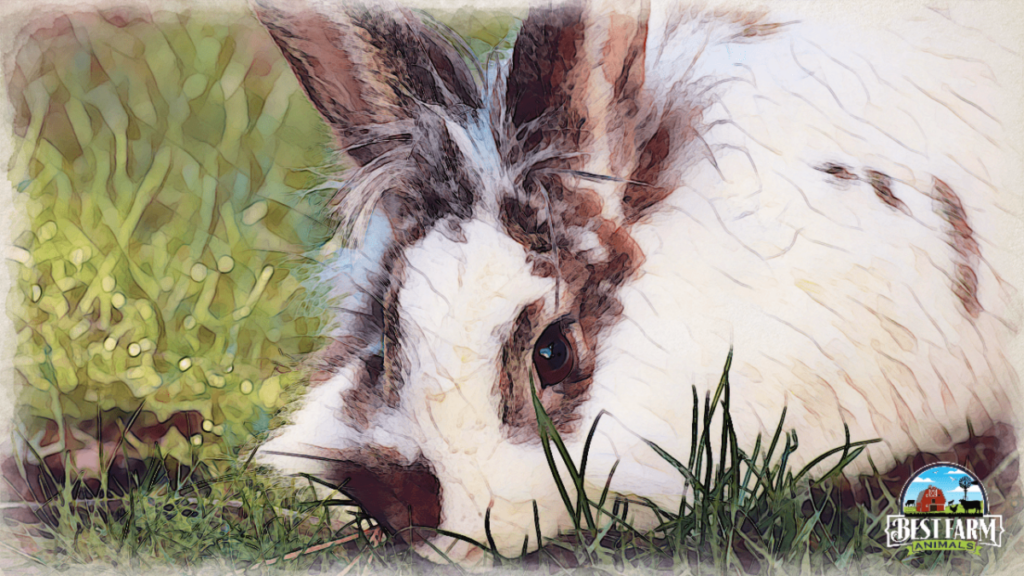
10. Shaking as a Sign of GI Stasis
In rabbits, GI stasis is very poorly understood. A rabbit has a delicate digestive system; when things stop flowing, they get blocked up very quickly. This can lead to infection, pain, and death. If your rabbit has developed GI stasis, you will need to get them to a vet as soon as possible.
Shivering and shaking can be a sign of pain, specifically GI stasis-induced pain.
What It Looks Like:
Your rabbit will lie on its side, shivering and trembling convulsively when it has GI stasis. It will have no interest in food or water, which is another dead giveaway that your rabbit has digestive distress.
What to Do If Your Rabbit Shakes
Knowing what causes your rabbit to shake can help you decide what to do to stop the shaking. What helps stop the shaking may increase shaking in other instances, so be careful when deciding what to do.
Happiness as a Cause of Shaking is Normal
If your rabbit is happy and shakes because of this, you can simply enjoy it. Should your rabbit become too boisterous, they may binky around. Binky around is when a rabbit jumps around from joy and excitement. That’s how your rabbit expresses themselves. Keep an eye on your other pets to ensure they don’t misunderstand your rabbit’s joy and decide to give chase or start playing too rough.
Anger
For an angry rabbit, it is best to leave them alone. If you had them out of their cage and were holding them, then return them to the cage. Give it a few minutes; if they are still thumping, you can partially cover the cage with a towel.
Should these bouts of anger persist, consider whether your rabbit is neutered or spayed or if they are unaltered, it is a good idea to have them “snipped.” Spayed does and neutered bucks are much more docile and less prone to anger outbursts.
Hiccups
For a hiccupping rabbit, it is a good idea to gently rub their back when they are trembling. After some time, your rabbit will calm down and the hiccups will subside. If the hiccupping continues, you may need to see a vet as there may be more serious underlying causes.
Heat Stroke
Should you suspect that your rabbit is suffering heatstroke, you can start to address their shaking by spritzing them with cool water (but don’t wet their fur though). You can move their cage to a cooler room. Place ice bricks next to the cage and turn on the fan to oscillate or AC so they can begin to cool down.
In severe cases, where the heatstroke is prolonged, you may need to rush your rabbit to the vet as they may have lost fluid too, and only an IV transfusion of liquids may save them then.
Fear
A rabbit that is scared may suffer severe shivering and tremors. The best way to soothe them is to leave them in their hutch or cage so they can calm down. Trying to hold them and rub them will likely only worsen the situation and increase their fear.
Give them a place without loud sounds and a lot of visual stimulation. It should also be away from dogs and children.
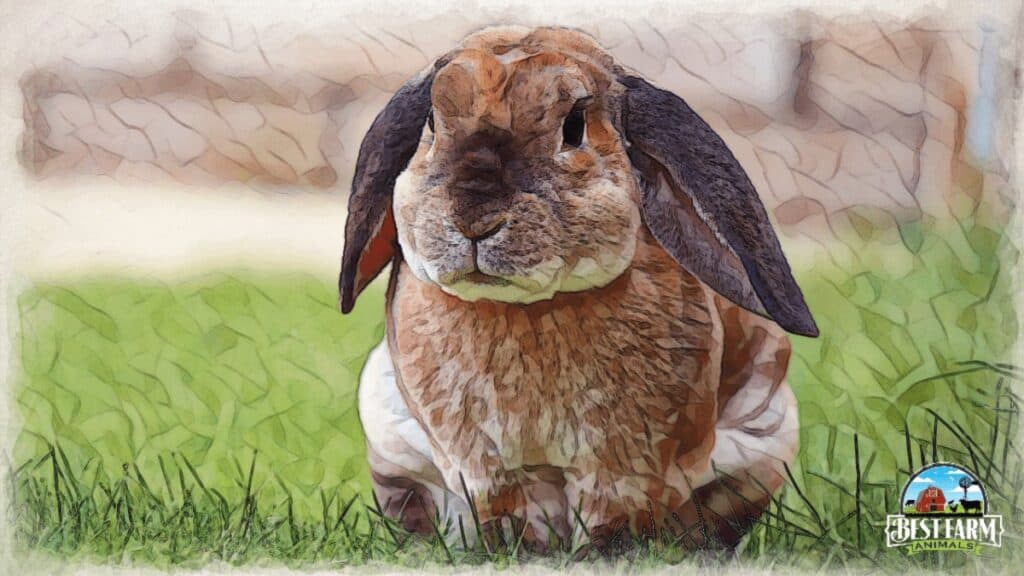
Insects
When your rabbit has ear mites or lice, their head-shaking will only improve once this problem has been treated. Inspect your rabbit’s ears for signs of ear mites, dried blood, or a grainy residue (which is a mix of blood and ear mite excretion). If you find signs of insect bites or blood, it means you need to take action to remove the infestation.
Consult with your vet about a rabbit-safe flea, lice, and mite spray that you can use as a spot treatment. You can also comb through your rabbit’s fur with a lice comb and a solution of warm water and dishwashing liquid as this will kill the fleas and lice.
Parasites
Other reasons for shaking can be related to internal parasites. Deworm your rabbit at least once a year, or possibly more if you suspect they have a worm load. Rabbits that tend to lie on their side and shake or scratch at their belly and shake may have worms, so consult with your vet who can do a fecal count of worm eggs to tell you whether deworming is necessary.
Tension
Rabbits that are prone to tension will shake and tremble at the slightest disturbance. Keep these rabbits in areas that are quiet and peaceful. Make sure there is both sun and shade for them to enjoy when in their cage or hutch or run.
In extreme cases, you can ask your vet for a mild sedative that you can add to their daily feed. A rabbit that is excessively nervous will begin to stress and this will weaken their immune system. Sickness and death are sure to follow if you don’t treat their tension.
Digestive Pain
Make sure your rabbit eats appropriately. Avoid feeding human foods such as sugary treats, keep pellets to a minimum, and provide loads of fresh hay (75% of their diet) and leafy greens to ensure your rabbit has good digestion.
Deworm your rabbit as required, and make sure they are checked for injuries that may happen during play. A rabbit can easily suffer a broken rib during a play kick from another rabbit, which can lead to pain and digestive discomfort. Check whether your rabbit passes natural stool, if they are eating their caecotrophs, and whether they are drinking enough water.
If you suspect they are in severe distress, take your rabbit to the vet as they may require antibiotics and other medication.
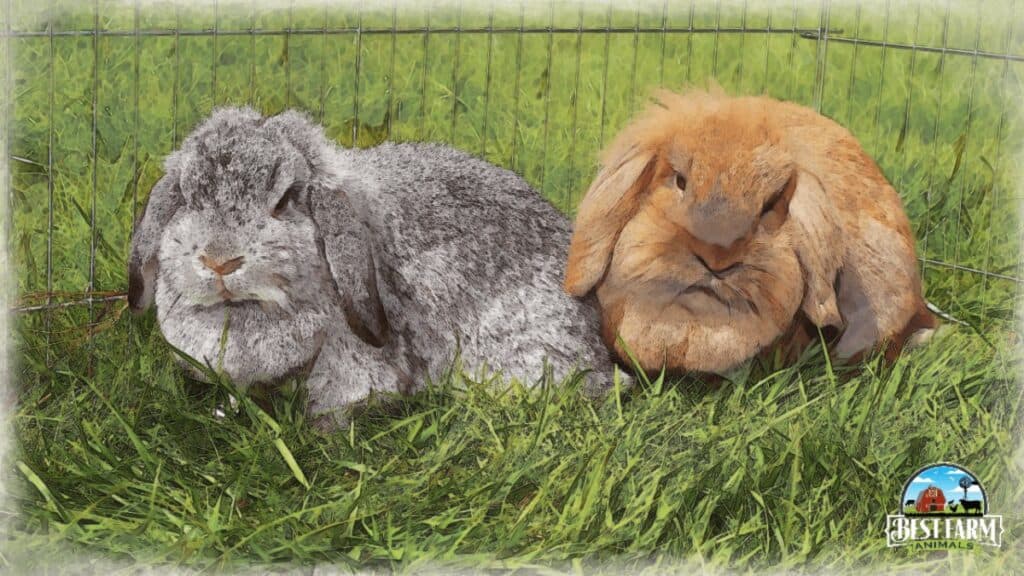
Rabbit FAQs
Is it normal for a rabbit to shake?
It is normal for rabbits to shake or vibrate slightly. This typically indicates feelings such as happiness, fear, or stress. They also shake when they have hiccups or sneeze. If a rabbit shakes continuously, this could be due to an underlying health condition such as GI stasis, parasites, or heat stroke.
How do you calm a shaking rabbit?
Move the rabbit to a safe environment and reassure them by speaking softly and gently. Avoid making any sudden movements or trying to pick them up. Instead, sit as close to them as possible and stroke them gently. Distracting them with a tasty treat also works well. Closing their crate with a towel helps.
How to stop rabbits from shaking?
First, identify why the rabbit is shaking and remove the cause. Ensure the temperature in their living environment is not too hot or cold. Keep their living area safe and clean, as suddenly introducing other bunnies or a mess can cause stress. If they continue to shake, take them to the vet for a checkup to ensure there are no underlying issues.
Why is my bunny wobbling?
If your bunny is wobbling, this typically indicates that they’re experiencing weakness. This can be due to heat stroke, ear parasites, or food poisoning. If your bunny lies down and refuses to get up, you must get them to the vet urgently. A wobbly or off-balance rabbit may have a viral disease or be in pain.
How do you know if a rabbit is scared?
If a rabbit feels scared, they’ll hunch over, make themselves appear small, and flatten their ears against their body. You may notice their eyes are wide, and they seem to freeze in place. A frightened rabbit may also tremble uncontrollably and growl at you if you get too close. When scared too much, they may have a heart attack.
What does a rabbit seizure look like?
When a rabbit experiences a seizure, they may experience sudden involuntary body movements such as tilting their head, twitching, and trembling. Rabbits also make a paddling motion with their paws and seem confused. In some cases, the rabbit may lose consciousness and experience temporary blindness.
Why is my rabbit twitching?
If your rabbit is shaking and starts twitching, they feel stressed, uncomfortable, or have a seizure. A rabbit will sometimes twitch in an attempt to self-soothe. Rabbits can also binky, which is when they make twitching, jerky movements and twirl in the air to show they’re delighted. Rabbits also twitch in their sleep when they’re dreaming.
In Conclusion
Luckily, our dear Fred was okay and only had a mild case of indigestion. With a few belly rubs, he was soon feeling better, but I noticed my youngest child loved to sneak him Twinkies! Having spoken to the culprit about not feeding Fred human food, his shaking hasn’t happened again.
Take care to monitor your rabbit for shaking as this can be one of the only signs you will get that something is wrong. Rabbits hide it when they aren’t feeling well. Understanding what is causing the shaking helps you know what to do to make your rabbit feel better and save its life.
Recommended Rabbit Supplies
This list contains affiliate products. Affiliate products do not cost more but helps to support BestFarmAnimals and our goal to provide farm animal owners with accurate and helpful information.
Housing: If your rabbit is indoor, you’ll need a cage, a hideout (to keep your rabbit from death by heart attack), and a space for it to get exercise and spend time with you. If you don’t want to let it run free in your house, this animal playpen provides space and keeps your rabbit from hiding under your couch.
If you keep your rabbit outdoors, an outdoor hutch that provides space and protection from predators is needed. (I’d still keep mine in a barn for further protection from the elements.)
You’ll also need bedding, toys, a grooming brush, and treats for your little friend. A litter box is important because rabbits can be potty trained. Timothy hay is the best kind of hay for rabbits as alfalfa is too sweet. Don’t forget a water drinker. I like the half-gallon waterer because it can cover two rabbits for several days. Pair it with a food bowl or a food manger (a little cleaner) and you’ll be set up!
If you want to treat your bunny to entertainment, a cat tower, a treat ball, or bunny toys all work wonderfully.
Finally, if you plan on taking your rabbit with you on trips, you’ll need a carrier. Here’s a small carrier or larger carrier that work great for occasional travel. If you travel a lot, you might want the carrier that’s rated #1 in safety for safe travels
Lastly, I use this odor eliminator for accidents and to wipe out the bottom of the cage and litter box when I clean it.

